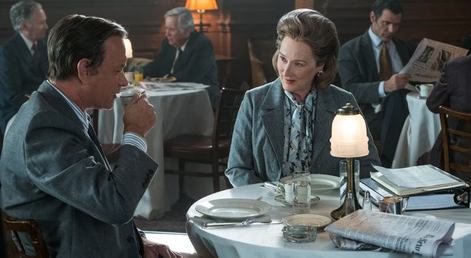Review: "Phantom Thread"
Oh, how I hope the Academy at last has the good sense to make Lesley Manville an Oscar nominee!
Manville, whose brilliant turn in Mike Leigh's Another Year was worthy of not a mere Oscar nomination but the outright win, is once again kicking ass and taking names, this time with a key supporting role in Paul Thomas Anderson's Phantom Thread. With a mere glance, Manville is able to seamlessly steal a scene, even against that three-time Oscar winner Daniel Day-Lewis. When Manville doesn't grace the screen, which is far too often, she is sorely missed.
Manville's performance is, I'm afraid, one of a mere few reasons to check out Anderson's latest picture, a sumptuously designed but otherwise unpleasant and uninvolving vehicle for Day-Lewis, who is surprisingly in rather stiff form.
Day-Lewis portrays a real son of a bitch, superstar dressmaker Reynolds Woodcock who, in the 1950s, is the hottest name in London fashion. Bored with his latest female companion and frustrated with work, Reynolds takes a few days to escape to the countryside. There, he becomes enchanted with Alma (Vicky Krieps), a mild-mannered, beautiful waitress who is just as enamored with him.
Alma returns to London with him, where there's no shortage of friction between she and Reynolds' sister Cyril (Manville) and, eventually, Reynolds himself. Alma soon finds herself facing the same predicament as past women in Reynolds' life - how can one make him fall in love, not merely for a fleeting moment, but for a lifetime, in a long-term relationship? Well, Alma might just have a few more tricks up her sleeve than Reynolds' earlier companions.
Phantom Thread is, on an all-too-rare occasion, a glorious sight. The picture looks gorgeous, stunningly photographed by Anderson, with striking costumes by Mark Bridges (this should be a shoo-in for that Oscar). The Jonny Greenwood score is also exquisite. And, as already mentioned, Manville is simply divine as Reynolds' loyal, truth-telling sister. Every scene with her is riveting, as is a brief sequence toward the film's center with the always-great Harriet Harris as a wealthy but profoundly unhappy client of Reynolds'.
The downfall of Phantom Thread is in the Reynolds-Alma pairing itself, a stilted, soulless relationship that just isn't the least bit compelling - I'm still trying to figure out what Anderson sees in this duo! The film's final act, which closes in on the pair and sends Cyril to the sidelines, is a combination of tedious and absurd.
Phantom Thread sports marvelous stories that could be told, whether focused on the spellbinding Cyril, the fascinating Barbara Rose (the Harris character) or even those wise old seamstresses - imagine a picture told from their points of view! Instead, we're stuck front and center with Reynolds and Alma, two insufferable, chemistry-free people who suck the life out of a film that isn't without its precious pleasures.
B-









